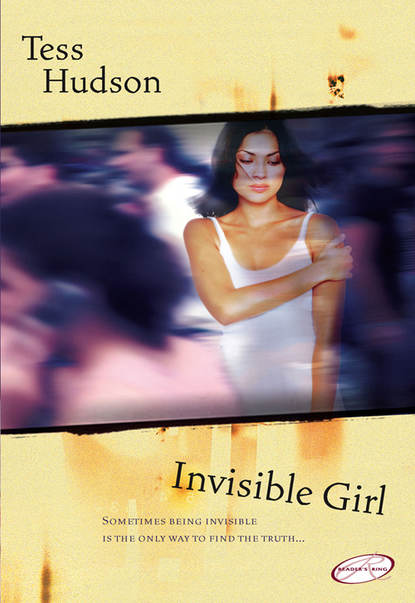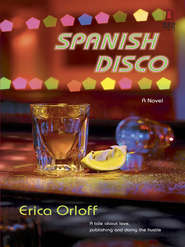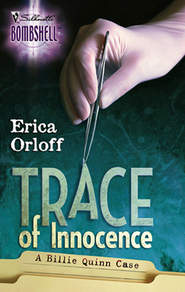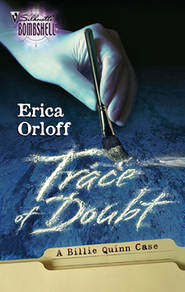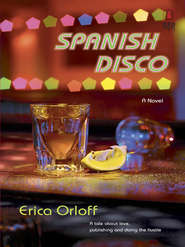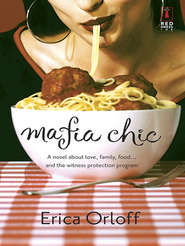По всем вопросам обращайтесь на: info@litportal.ru
(©) 2003-2024.
✖
Invisible Girl
Автор
Год написания книги
2018
Настройки чтения
Размер шрифта
Высота строк
Поля
Maggie felt queasy, not because he’d been shot, but from the idea of sticking a knife, tweezers, anything, into a hole in someone’s flesh, let alone her father’s.
“Daddy…” she said in a whisper, laden with the question, there in the way she spoke his name, do I have to?
“I can’t ask Danny. He’s doing something for me. And I can’t get Uncle Con on the phone. Please, I’m asking you. I’m starting to run a fever, and I’ve got to get it out of me. I’ll talk you through it. Piece of cake. You’re a Malone.”
Maggie nodded. “Are you going to be okay?”
“I promise. And you know I never promise unless I can deliver the goods. Please, baby.”
She breathed deeply, not sure if she would pass out or not. “I’m going to get me a drink.”
“Sure. Get me one, too.”
Maggie went out to the bar and pulled down a bottle of scotch. She took two fat water tumblers and set them on the bar. She hated scotch. Although her father had let her and Danny drink beer since they were small, she never drank anything uglier than peppermint schnapps. But she wanted something powerful and nasty. She poured two generous scotches as if she were pouring water. She took one and downed it in a few gulps, fighting the retching feeling in her throat and gut, emitting an audible gag. She put the tumbler on the bar and literally shook her shoulders and head, trying to keep the vile liquid inside her. Then she refilled her glass and brought it along with her father’s drink into the office.
A first-aid kit was open and his shirt was off. The kit looked like an army-issue one, and she imagined it had come home from Vietnam with him, long before she had even been born.
“Thanks, darlin’,” he said, taking the scotch from her and downing it without shivering or even making a face.
Maggie stood behind him, staring at the bullet wound. Its edges were clean, and it looked deep. She could only see dark red blood, but she knew that in the hole, layers of skin gave way to muscle and below that bone. Steadying herself, she peered into the hole of flesh and blood, smelling the bitterness of burned skin, again feeling a violent convulsion in her stomach.
On her father’s desk was a scalpel. A real scalpel, not a knife. She didn’t ask where he’d gotten it or why he had it. She never asked about anything. Not about the loaded gun that always sat on his nightstand, or about the occasional 2:00 a. m. visitor, men with whispered secrets and file folders and photographs. Next to the scalpel was a pair of very long tweezers with pointed ends.
“Okay, Maggie,” he said as he handed the scalpel to her. “Now, the scalpel is really sharp, so don’t cut yourself. Just poke this into the hole and dig out the bullet a little. Use the tweezers when you can finally see it. Get all of it. Make sure of that. If it’s hit bone, you’ll have to dig more.”
She gritted her teeth, hands shaking. Gingerly, she entered the back of his shoulder with just the very tip of the scalpel, feeling as if she were going to throw up.
“Honey, don’t be afraid to hurt me. I’ve taken way worse.” He laughed. “Ain’t nothin’ to an old soldier like me.”
By now, the scotch was having its effect. Feeling as though she were in a dream, watching someone else stick a scalpel into the wound, she dug deeper, blood oozing from the hole and dripping in small rivulets mixed with sweat down his back. She finally saw the bullet’s gray-black color. She switched tools, and Maggie’s tweezers emerged minutes later with the bullet, which she scooped into her hand and then placed on the desk. Her father visibly relaxed, his back tense from effort of steeling himself against the pain.
“Now the stitches.”
He talked Maggie through cleaning the wound with peroxide, which sizzled and bubbled. Then she sewed the edges of the wound, packing gauze into it, and then covered it with a large square piece of gauze, and finally she taped all around it.
When she was done, her father turned around. He had the solid jaw of a soldier. His eyes were a peculiar blue-green, nothing like his children’s. His hair was a dark shade of brown, speckled with a little gray. Freckles scattered across his nose and deep lines surrounded his eyes, from squinting, he’d told her once, as he’d marched in the sun. His body was still as taut as when he’d been in the service, with rock-like biceps covered in tattoos, and then the old scar from the war. She had pictures upstairs of him in the grassy fields of Vietnam, a youthful soldier, but still something about him, an air of toughness, that came through even in the grainy photographs. He looked nothing like Danny and her. They would always look, to strangers, like adopted children, their features so much their mother’s.
“I’m sure you left a pretty scar.” He winked at her. “A new one that I’ll always know you fixed up.”
“Are you going to tell me what happened, Daddy?”
“Nope. I’ll tell you what, though…Did I ever explain why I named this place the Twilight?”
“About a hundred times.”
“I know. I just like that story.”
“I still like hearing it.”
“Well, then. It was because in Vietnam, twilight was beautiful. I mean, we were in a shit hole of mosquitoes and humidity, but that sky turning orange and pink sometimes, it was…humbling. And off in the distance, it’s like you’d hear fireworks. Of course, it wasn’t fireworks. It was war. I used to watch the burst of flames rising up from the treetops.
“For pilots, twilight can be dangerous. Sort of that world between night and day. Between heaven and hell. I didn’t think I could feel that aware, every muscle twitching. And one twilight, we’d landed near this village. It seemed okay. Peaceful. I waded through the swamp, and me and my guys, we walked toward some huts, and I saw a girl carrying a basket. She was the most beautiful girl I’ve ever seen in my whole life. And in that second, in that minute, my whole world changed. Vietnam went from being a place I hated to being the place where the person I loved was from. When I finally got back to America, I bought this place and named it after my alive time, when I realized I never wanted to live so much as when I saw her. Twilight. When the sky was pink.”
“I wish I knew you then,” Maggie whispered. She wished she knew him now. He was her father, but he was a stranger.
“I remember the day you came home from the hospital. I was alive then.” He shrugged his shoulder a bit, moving it around. “This is gonna be a bitch tomorrow.”
“Sure is.” She grew silent for a minute. They both did. “Okay then,” she said softly. “I’m going back upstairs.”
“Thanks, kiddo. You really came through for me. I love you, bright eyes.”
“Love you, too.”
She left the office and grabbed the bottle of scotch off of the bar, taking it with her to their apartment. As soon as she got up there, she ran to the bathroom and threw up, the scotch burning her throat a second time as it seared her on its way out. She leaned her elbows on the toilet seat and felt her lids fill with tears, but she refused to cry. She stood and washed her face in the sink. The hole in her father’s shoulder kept coming into her mind. She left the bathroom, took the bottle of scotch and put it on the dining-room table. She fetched a mug from the kitchen and began drinking, forcing herself to keep it down, drinking the hole of flesh away. That night was the first time Maggie ever drank herself into a blackout.
“You’re making me nervous,” Maggie snapped at Bobby, who leaned over her and was staring at her handiwork, occasionally offering advice.
“How did you learn to do that?”
“It’s like riding a bicycle.”
“Sure it is. Only you would use that analogy.”
Danny’s face now vaguely resembled Dr. Frankenstein’s monster. Black thread wove crookedly through loose skin, but she had closed up the slice in his cheek, cleaned off the blood and sewn up the cut above his eye—it was deep and ran through the eyebrow. She bandaged his arm, hoping perhaps it wasn’t a break, but setting it as best she could. She had tried to jam the dislocated shoulder back into place the way she’d seen her uncle Con do once for her father.
She applied a warm washcloth over and over again to Danny’s face, slowly easing off the caked blood. She cleaned along his hairline and wiped his hair. He looked better than when she’d first seen him. Swollen, turning an eggplant-purple, but with some of Danny’s “luck o’ the Irish and blessings of Buddha,” as their mother used to say, he’d still have a semi-beautiful face when it was all healed.
Maggie mashed some Tylenol No. 3 into the applesauce and roused her brother enough to feed him three tablets. Then, with Bobby’s help, she got him onto the mattress they’d taken from her pull-out couch and had placed on the floor.
“Now we watch him,” she whispered, getting up from her makeshift operating room.
“Your hands are shaking.”
“The first time I did this, I had half a bottle of scotch in me. Actually, the second and third time I did this, I had scotch in me.”
“Drinking wouldn’t have made this night any easier.”
“Easy for you to say.”
“Look, Maggie, I just watched you stitch up a man on your living-room floor like you work in a fucking MASH unit. I’m part of this whether you like it or not.”
She sat down on the love seat, and Bobby took the chair opposite her.
“I’m sorry, Bobby.”
“Don’t be sorry. How about telling me the truth? Let’s start with that.”
“Truth depends on who you talk to. But I know I owe you as much.”





